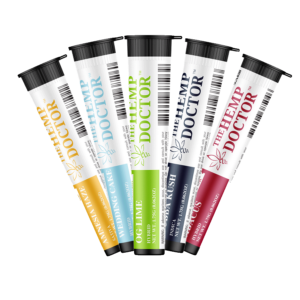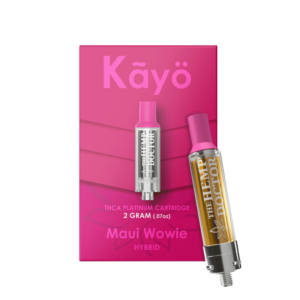Michigan dethrones California as the top cannabis market in the US, selling over $24.2 million in cannabis products as of May. Forecasts say the Wolverine state’s cannabis market will balloon to $4 billion in 2028.
Since Michigan became the 10th state to legalize recreational cannabis, the number of dispensaries has grown to 994. This puts Michigan in the fourth spot for the largest number of cannabis stores across states.
If you’re mulling applying for a Michigan dispensary license or putting up a store in general, now’s the best time to see how the process goes. Read here a detailed step-by-step guide on how to open a dispensary in Michigan.
The Detailed Steps of Opening a Dispensary in Michigan
Before proceeding, you must know whether you’re eligible to own a cannabis business in Michigan. Once you check all the following minimum requirements, you may continue with drafting a business plan:
- You must be at least 21 years old.
- You have not committed a felony for the last ten years.
- You have no record of any misdemeanors involving controlled substances in the last five years.
- You have not violated any local ordinance for the last five years.
- You have no history of issues with law enforcement or legal violence (traffic violations are exempted).
Step 1. Draft A Business Plan

A business plan is a blueprint for determining your company’s character, goals, and how you intend to achieve them. You may draft your business plan using the templates online. However, since it needs to be submitted for the licensing application, input from consultants, co-owners, and professionals must be obtained during the drafting process.
Here are the sections of a business plan:
- Executive summary (includes information about target customers, solves what problems, differentiating features, etc.)
- Company description (includes mission, history, goals, etc.)
- The ownership and employee hierarchy of the company
- Market research and potential
- Competitive analysis
- Product and service description
- Inventory sourcing plan
- Diversity and equity plans
- Physical location
- Safety and security plan
- Technology Plan
- Marketing and sales strategies
- Financial plan and budget
You don’t have to add or follow the sections in order rigidly. Customize your business plan according to the type of cannabis business you have in mind.
| 🗒️ Take Note: The state of Michigan uses the term “marihuana” instead of marijuana and “provisioning centers” instead of dispensaries in its legal and state-based documents. The outdated spelling was borne out of the Marihuana Tax Act of 1937. Congress will need to act just to change the legal spellings, which can be impractical. |
Step 2. Establish Your Business Entity
If you don’t have a business entity yet, it’s time to apply for one. A business entity is one of the most basic requirements in signing a lease, hiring staff, etc. So, you need to secure one as soon as you have a lawyer to handle the technicalities and actual filing.
After successfully filing a cannabis business entity in Michigan, you will need to secure a business tax ID, business bank account, and business insurance.
Here’s a guide from the State of Michigan’s Licensing and Regulatory Affairs to get a sense of the type of business entity you want.
Step 3. Secure Your Location

Dispensaries are unique stores that require extra steps. Because Michigan is an “opt-out” state, not all municipalities and areas allow them. Even if a jurisdiction allows cannabis businesses to flourish in the area, there would be specific regulations, such as zoning rules, to abide by.
As a general zoning rule, any Michigan-based dispensary must not be within 1000 feet of schools, childcare centers, other cannabis stores, liquor stores, or zones tagged “drug-free.” Dispensaries in residential areas are also rare since owners need to have written approval from the district.
You don’t need to secure a commercial lease in your chosen location immediately (at least for the pre-qualification phase of licensing). However, you need to have a location solidified before phase 2, the actual Establishment Licensing application.
Step 4. Ascertain the Costs
As your business plan becomes clearer, you can now put together a reasonable budget for your store. Here are the huge costs that will take up most of your budget:
- Real Estate: Renovation expenses, ongoing rent, mortgage, and downpayment.
- Licensing: Application fee ($3,000), licensing fee and renewal ($15,000)
- Operational cost: Utilities, freelance fees, marketing, etc.
- Employee salary: Salary, benefits, taxes, etc.
- Hardware: Security, tech, store, furniture, etc.
- Inventory cost: Cannabis products
- Taxes: 10% excise tax on top of 6% sales tax.
Sources suggest that the upfront cost of putting up a cannabis dispensary in Michigan is between $47,000 and $136,000. You would need around $250,000 to $1 million to maintain the business. These are rough estimates. The total cost significantly varies depending on the size of your dispensary and other variable costs, such as marketing.
Now that you have a ballpark figure, securing the fund is the next step.
Step 5. Obtain Financing
You may feel discouraged initially, as some financial institutions can be quite cold to a weed business. However, you have several funding options available if you just search. Here are some of them:
- Self-funding: The easiest way to secure funding is if you have legally acquired cash.
- Family and friends: Another easy way to find investors is to persuade interested family members or friends. Family-owned cannabis businesses are popular.
- Partners: Many cannabis businesses are built upon partnerships. They can be active contributors to executive decisions or silent partners.
- Loans: Some banks allow business loans for this type of industry.
- Private funds: This source type involves private equity, venture capital, or angel investors. You’ll get huge funds from this, but your stake in the company will be lower.
- Crowdfunding: This type of fundraising seeks help from the public using online crowdfunding platforms.
Step 6. Create an Accela User Account
The first step in applying for a dispensary license in Michigan is creating an Accela User Account. To do so, go to www.michigan.gov/craonline and click “Register for an Account.”
Enter your login information, and don’t forget to check the box beside “I have read and accept the above terms. Click CONTINUE once done.
Click the button beside the type of contact you have.
Fill out at least all of the required fields with a red asterisk. Click submit.
You’ll be directed to this page with your login details once successful.
Now, you can use the login details you created to log in as a main applicant in Phase 1: Pre-qualification Licensing.
Step 7. Apply for a Pre-Qualification Licensing Process
The first phase of the licensing process is the “Pre-Qualification Licensing.” In applying, you must identify whether you’re the main applicant or one of the supplemental applicants. Either way, both should apply for pre-qualification, or the business can’t proceed to phase 2.
To differentiate, here is CRA’s definition of main and supplemental applicants:
Main Applicant
The main applicant is the business entity or sole proprietor seeking a dispensary license. He must pay a sum of non-refundable $3,000 as an application fee.
Supplemental Applicant
A supplemental applicant doesn’t need to pay a fee to submit a pre-qualification application. Who are supplemental applicants? The nature of a supplemental applicant depends on the dispensary’s business structure. The state outlines them here:
- Limited Liability Companies
- Publicly or Privately Held Corporations
- Sole Proprietorships
- Partnerships and Limited Liability Partnerships
- Limited Partnerships and Limited Liability Limited Partnerships
- Multilevel Ownership Enterprises
- Nonprofit Corporations
- Trusts
| 🗒️ Note If you are qualified for the Michigan Social Equity Program and would like to apply for one, you must complete the application before proceeding with the pre-qualification licensing process. |
Once you’ve determined the type of applicant you are, it’s time to collect the following documentation before applying online:
- Attestation: Five attestations and a signed and notarized acknowledgment of these attestations.
- Entity information: Governing docs, certificate of good standing, approval to conduct business in Michigan, certificate of assumed name, copy of organizational structure, authorizing resolution, and social equity plan.
- Regulation documents: Copy of marihuana licenses and a summary for reasons of denial, restriction, revocation, suspension, or nonrenewal (only if applicable).
- Tax compliance: Copy of notice of tax liability due
- Litigation documents: Any litigation documentation (only if applicable).
Here are detailed instructions on the specific type of documents needed for the following applicants:
Completing this documentation before the pre-qualification process is important because you must complete the application in its entirety. If you leave your application incomplete, you only have five days to remedy the issue.
To submit these documents, you must log in to your Accela User Account using the login details you provided. Click either “Adult-Use Establishment Licensing” or “Medical Facility Licensing” according to the type of cannabis business you wish to erect.
Let’s say you chose “Adult-Use Establishment Licensing.” You now need to click “Create an Application.”
Once you have clicked the box before the text, “I have read and accepted the above terms,” tap “Continue Application.” You will be directed to the page where you have to select “Adult-Use Step 1: Pre-qualification Application” and check the box before your appropriate identity, which can either be:
- Entity Registration
- Sole Proprietor Registration
- Supplemental Individual Registration
After that, click “Continue Application.”
You will be directed to a page where you must fill in the fields with accurate information that applies to you. Click “Continue Application” after a page has been completed or click “Save and resume” later.
After completing the process, wait for an email containing payment instructions for the non-refundable application fee.
| Tip: Use Michigan’s Cannabis Regulatory Agency (CRA) website to explore resources explaining the state’s licensing process. It’s a one-stop page for everything, including renewal, online application, etc. |
Step 8. Apply for Establishment Licensing
After the main and supplemental applicants successfully achieve the pre-qualification licensing, the main applicant may now apply for phase 2, which is the establishment licensing. Here are the most important points to remember during this process:
- During this process, CRA background checks your business details, proof of financial responsibility, municipality information, and general employee data.
- The CRA will inspect your physical store within 60 days of the application submission. This is why it’s important to secure this before applying.
- Your establishment must pass the Bureau of Fire Services (BFS) review within 60 days of submitting the complete application.
- Collect the following documents before the actual application process of phase 2:
- Attestations: Four attestations and a signed and notarized acknowledgment of these attestations.
- Business specifications: A copy of the Certificate of Use and Occupancy, deed or lease agreement, proof of financial responsibility, business location plan, floor plan, business plan (includes technology, marketing, staffing, inventory, and recordkeeping plan), DBA documentation (if applicable), and Certificated of Assumed Name (if applicable.
Log in to the same initial page where you logged in for pre-qualification licensing. Click “Adult-Use Establishment Licensing” or “Medical Facility Licensing” and click “Create Application.” After ticking the box on the disclaimer page, you will be directed to a page with different application options.
Select “Adult-Use Step 2: License Application” and click the circle with your license type. Click “Continue Application.”
Fill the required details, attach the document, and review your information.
Step 9. Review Michigan Dispensary Laws
Now that you’re on your way to realizing your physical store, it’s a good idea to review the current marijuana retailer rules in Michigan. This will help align your next steps better with the current laws.
| Rule | Details |
| Age requirement for recreational cannabis access | Individuals 21 years old and above. |
| Purchase limit per customer daily | Retail products are restricted to the following amounts for one customer per day: – 2.5 ounces of marijuana – Seven grams of vapor or concentrate – 16 ounces of marijuana-infused solid products – 36 fluid ounces of liquid marijuana-infused 12 cannabis plants – 15 grams of concentrated cannabis |
| Michigan’s Marijuana Tracking | Michigan requires dispensaries to integrate a point-of-sale tracking system (POS), which records all sales times, dates, times, and quantities. The state currently enforces Metrc as its main seed to sale tracking program across dispensaries. |
| Taxes and late license renewal fees | Tax treatment on cannabis sales includes: – 3% tax on gross retail is to be paid to Michigan Treasury Online. – 6% sales tax added to the excise tax on statewide sales – Late license renewal fees. |
| Other cannabis store regulations | Any cannabis store isn’t authorized to allow the consumption of marijuana on its premises unless it gains a specific license for that and has a designated smoking area. Dispensaries aren’t allowed to sell food. |
| Cannabis delivery | Permitted only when the entity secured approval from CRA. |
| Product display | Dispensaries aren’t allowed to display their marijuana products in a way where people outside the store can see them. |
| Packaging and label requirements | – Packaging designs that are attractive to children are not allowed. – Packaging must be child-resistant, resealable, and opaque. – Packaging should include a printed text: WARNING: USE BY PREGNANT OR BREASTFEEDING WOMEN, OR BY WOMEN PLANNING TO BECOME PREGNANT, MAY RESULT IN FETAL INJURY, PRETERM BIRTH, LOW BIRTH WEIGHT, OR DEVELOPMENTAL PROBLEMS FOR THE CHILD |
| Advertising protocols | – Don’t engage in false advertising – Directly target minors or those under the age of 21 |
Step 10. Layout the Inside of the Dispensary

Part of the cannabis store layout process involves finding the location before designing the space. This order is a norm among dispensaries since only a few available commercial areas in Michigan allow weed businesses.
Here’s a short list of what you need to address in your store’s interior layout:
- Your customers’ comfort as they move around your store. Do they have access to everything? Can they shop without bumping into things and people?
- Where and how will customers pay?
- Is there a separation between in-store and online order pathways?
- How will your product be displayed without spoiling but still near enough for close inspection?
- The entrance, waiting, bathrooms, and parking space.
- Security of your store’s entrance
- Inventory space
- Staff area
Step 11. Secure Your Cannabis Store According to Michigan’s Dispensary Security Regulations
Michigan, in general, has strict cannabis commercial establishment security measures. Install the following security tools and measures to adhere to these basic rules:
- Restricted areas should only generally allow employees. If a non-employee needs to enter, he should be accompanied by another employee.
- Secure locks in interior rooms, windows, entry doors, and exit doorways using commercial-grade door locks or keypad access.
- Exit doors should comply with the safety rules of NFPA 1, local fire codes, and Michigan building codes.
- Alarm systems
- Video surveillance should have a minimum resolution of 720p.
- Adequate room lighting.
Step 12. Hire Staff
Hire a team by following the general staffing plan you submitted during the establishment licensing application process. The roles could be:
- Store manager
- Budtenders
- Cannabis sales associates
- Security
- Inventory person
- Compliance Specialist
Step 13. Stock up on Inventory
You’ll need to find suppliers for your inventory if you’re a retailer license holder and a non-vertically integrated business. These could be cannabis farmers, wholesale sellers, distributors, and manufacturers.
Consider the following in your search for suppliers:
- The cannabis products they offer
- Quality of products
- Fulfillment/logistical system
- Prices (preferably in wholesale mode)
- COA
- Legality of their operation
- Reputation
Step 14. Purchase the Technology and Other Hardware
You have more freedom regarding what technologies and hardware to buy, except those the government requires. Your overall goal in buying them should be to elevate the customer experience, hasten the process, and be compliant.
- Internet
- Printers
- TV
- Cash drawers
- Computers
- Barcode scanners
- Kiosks
- Customer relationship management software
- Payroll tools
- Accounting tools
- Marketing tools like SEO
- Website
Step 15. Device a Marketing Plan
Marketing will spread the word about your business. A dedicated marketing team will prevent you from stagnating and, instead, scale. Hire a team to work on the following tasks and continue improving them:
- Functional in-store or online retail store
- Social media presence
- Promotional tactics like loyalty programs, seasonal discounts, etc.
Step 16. Prepare for Opening Day
Congratulations! You have completed the process of legitimizing your business, establishing a strong brand image, and implementing a functional system, and are now preparing to open your store to the public.
Here are some tips to make the opening day extra awesome.
- Offer amazing deals
- Throw in fun activities
- Give free tees and other merchandise
- Announce the day beforehand on social media and leverage influencers
Final Thoughts
Opening a dispensary in Michigan is a feat in itself. By following the steps above, you’re one step ahead of your competition and have avoided many potential issues along the way. Another way to fast-track your way to success is to partner with cannabis brands with proven experience and profitability when it comes to the products they offer.
Meet The Hemp Doctor Wholesale. Fifteen years since inception and hundreds of hemp-based cannabinoid products later, we’re stronger than ever. We would love to share our success with entrepreneurs like you. Browse through our catalogs now!
| Disclaimer: We always strive to provide factual and updated information, but this blog is not meant to provide legal advice. Always consult with a lawyer or relevant professional who can help you understand the legal nuances of opening a dispensary in Michigan. |
FAQs
How much money do you need to open a dispensary in Michigan?
According to Statista, you need at least $775,000 to open a dispensary in the US.
How much do dispensary owners make in Michigan?
No supporting data specifies the average profitability of cannabis stores in Michigan, but according to MJBizDaily’s survey, the average American dispensary owner’s salary ranges between $250,000 and $500,000 annually.
How long does it take to get a dispensary license in Michigan?
The Cannabis Regulatory Agency gives approval or denial within 90 days of receiving the complete application.
How do you open a weed dispensary in Michigan?
Opening a weed dispensary in Michigan involves several steps, such as opening an Accela User Account, applying for pre-qualification, and establishment licensing through Accela.
How can a recreational dispensary in Michigan be opened?
Select the “Adult-Use Establishment Licensing” option in the prequalification and establishment licensing process. This will put you on the correct path of applying for a recreational dispensary license.
How to start a dispensary in Michigan?
Start by drafting a business plan, followed by establishing your business identity, securing a location, obtaining funding, budgeting, applying for a license, etc.







